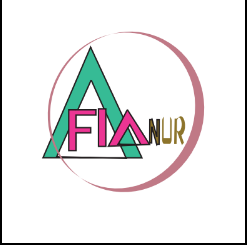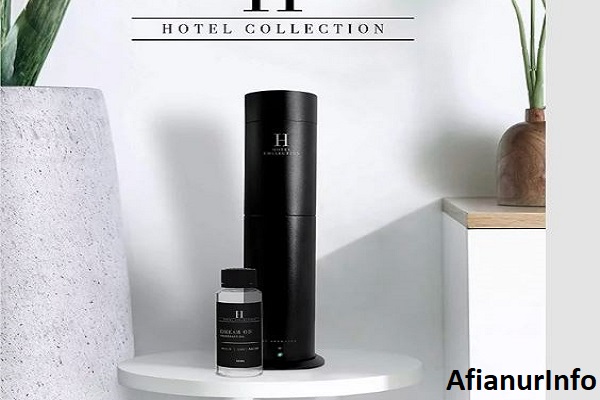Is Hotel Masculine Or Feminine in French? The word “hotel” is masculine in French. In French, the word “hotel” is masculine, and it is crucial to use the correct gender agreement when referring to it in sentences or using it in conversation.
Welcome to a discussion on the gender of the word “hotel” in French. The French language assigns genders to nouns, with masculine and feminine being the two possibilities. The noun “hotel” falls into the masculine category, meaning that it takes masculine articles and adjectives when used in sentences.
This gender assignment may seem arbitrary to non-French speakers, but it is an important grammatical rule to follow in order to communicate accurately in the French language. Understanding the gender of nouns is crucial for proper language usage and mastery of French grammar. In the following paragraphs, we will explore the reasons behind the gender assignment of certain nouns in French and provide a few examples to illustrate this concept further.
Understanding The Gender Assignment Of Nouns
Understanding the gender assignment of nouns in the French language is essential. In French, every noun is assigned either a masculine or feminine gender. The gender assignment is not based on any logical or objective criteria, but rather on historical and cultural factors.
It is important to note that the gender assignment of a noun does not determine the actual gender of the object it refers to.
However, there are some general rules and patterns that can help in determining the gender of certain nouns. For example, most nouns ending in -e tend to be feminine, while those ending in -age, -et, are usually masculine.
Nevertheless, there are exceptions to these rules, so practice and exposure to the language are key in mastering the gender assignment of nouns in French.

Is Hotel Masculine Or Feminine in French?
In French, “hôtel” is masculine. It uses the article “le” as in “le hôtel.” Remember to contract “le” to “l'” before a vowel, making it “l’hôtel.” Always use masculine adjectives and articles with it. For example, “un bel hôtel” means “a beautiful hotel.” This helps in proper gender agreement
Language Characteristics And Grammatical Rules
French nouns have grammatical gender, and hotel is a masculine noun in French. The gender assignment of nouns in French depends on various grammatical rules. For example, nouns ending in -e are usually feminine, while those ending in -age, -ège, -sme, and -isme are generally masculine.
Additionally, nouns referring to people often follow gender-specific endings, such as -e for feminine and -eur for masculine. It is important to note that not all nouns follow these rules, and some may have exceptions. Understanding the gender of nouns is crucial in French, as it affects not only the article used but also the adjectives and pronouns associated with the noun.
Therefore, learning the grammatical rules for gender assignment in French is essential for mastering the language.
Analysis Of “Hotel” As A Noun
As a noun, “hotel” in French can be both masculine and feminine, depending on various factors. One factor that affects gender assignment is the word’s ending. Generally, nouns ending in “-age” are masculine, while those ending in “-elle” are feminine.
However, “hotel” does not follow this rule, as it ends in “-el” but is masculine. Another factor to consider is the origin of the word. “Hotel” originates from the French word “hostel,” which is masculine. This may influence the gender assignment.
Additionally, some words in French have no clear gender assignment, and “hotel” falls into this category. It is important to remember that gender assignment in French does not always align with the gender of the object itself. It is a grammatical concept that varies based on rules and conventions.
Perception And Interpretation Of Gender
The perception and interpretation of gender in language varies across cultures and societies. Sociocultural influences play a significant role in shaping how languages assign genders to words. In the case of French, the concept of grammatical gender exists, where nouns are assigned masculine or feminine forms.
However, it is important to note that grammatical gender does not inherently imply biological or societal gender. The gender assigned to objects or concepts in a language is often arbitrary and does not reflect real-world gender distinctions. The interpretation and perception of gender in language are shaped by historical, cultural, and linguistic factors.
Understanding these influences is crucial to avoid associating grammatical gender with gender roles or stereotypes. It is essential to approach language with an open mind, acknowledging the complexities of gender perception and interpretation across different languages and cultures.
Historical And Cultural Significance
The gender assignment of words in French, such as “hotel,” is rooted in historical and cultural significance. Over the course of time, language developed specific gender associations to reflect societal values. These associations are not determined by the actual characteristics of the objects themselves, but rather by cultural beliefs and associations with gender.
Historical reasons for gender assignment in French can be traced back to the influence of Latin, as well as the development of gendered pronouns and adjectives. Moreover, cultural factors, such as linguistic traditions and patriarchal societies, also play a role in determining gender assignment for nouns.
It is important to understand that gender assignment in French is a linguistic convention, rather than a reflection of the object’s inherent qualities. This linguistic characteristic adds depth and complexity to the French language, showcasing the rich historical and cultural influences on the language.
Gender Neutrality And Linguistic Evolution
The French language’s grammatical gender system assigns masculine or feminine categories to nouns. However, in recent years, there have been discussions on gender neutrality and its implications on linguistic evolution. People are questioning whether the French language should introduce gender-neutral words to promote inclusivity.
This contemporary debate reflects the societal shift towards recognizing and respecting diverse gender identities. Advocates argue that using gender-neutral language helps to break traditional gender stereotypes and acknowledge non-binary individuals in society. Nevertheless, implementing gender neutrality in a language deeply rooted in gendered grammar poses challenges.
Critics argue that the French language’s gendered structure is an integral part of its cultural heritage and should not be tampered with. Balancing linguistic traditions with evolving societal values is an ongoing conversation that requires careful consideration and open dialogue.
Impact On Travel And Hospitality Industry
Gender assignment plays a significant role in the branding of hotels. In the travel and hospitality industry, the impact of gender inclusivity cannot be overlooked. The way hotels are perceived, marketed, and perceived can greatly influence customer appeal. It is important to understand whether a hotel is considered masculine or feminine in French as it can shape customer expectations and preferences.
The assignment of a gender can influence the design, decor, and ambiance of a hotel, catering to specific target audiences. With evolving societal norms and an increased focus on inclusivity, hotels are gradually shifting towards gender-neutral branding to create a welcoming and inclusive environment for all guests.
Hotels can adapt to the changing expectations of customers, promote a more inclusive travel experience, and strengthen their position in the competitive hospitality industry.
Read also more related topics: Can You Get Deliveroo to a Hotel?
can I rent a hotel for few hours?
Is It Legal to Have Cameras in Hotel Rooms
Can I Invite Guests to My Hotel Room?
Do Hotels Let You Stay for a Few Hours?
Can you drink tap water in New York Hotel?
Can You Get Food Delivered to a Hotel in Vegas?
book a hotel room for someone else
Can You Go to Hotel Pools Without Staying There?
Frequently Asked Questions On Is Hotel Masculine Or Feminine In French
Is Hotel Masculine Or Feminine In French?
In French, the word “hotel” is masculine. So you would say “un hôtel” for a hotel in French.
How Do You Say Hotel In French?
To say hotel in French, you would use the word “hôtel”. It is pronounced as “oh-tel”.
Is The Word “Hôtel” Always Masculine In French?
Yes, the word “hôtel” is always masculine in French, regardless of the specific hotel you are referring to.
Why Is The Word “Hôtel” Masculine In French?
In French grammar, all words that end in the letter “el” are generally masculine. This applies to the word “hôtel” as well.
Can You Give Examples Of Other Masculine Words In French That End In “El”?
Yes, besides “hôtel”, other examples of masculine words in French that end in “el” include “le tunnel” (the tunnel) and “le pastel” (the pastel).
Are There Any Exceptions To The Rule That Words Ending In “El” In French Are Masculine?
While most words ending in “el” in French are masculine, there are a few exceptions. For example, the word “la poubelle” (the trash can) is feminine.
Conclusion
To sum up, the gender of the word “hotel” in French is masculine. However, it’s important to note that grammatical gender in French does not necessarily correlate with concepts of masculinity or femininity. It is simply a grammatical distinction that exists in the language.
Understanding the gender of nouns in French is crucial for proper sentence construction and agreement with adjectives and articles. Whether a word is masculine or feminine in French is a matter of memorization and practice, and there are no hard and fast rules to determine the gender of every word.
So, if you are learning French, it’s helpful to create a vocabulary list and practice using nouns in complete sentences. With time and practice, you’ll gain fluency and confidence in navigating the intricacies of French grammar.




